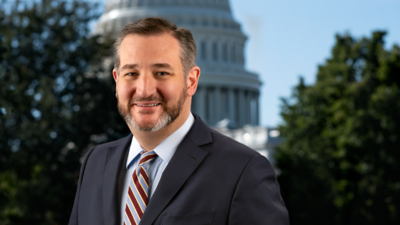There are three steps to reducing corruption in Chicago and they begin with completely rewriting its weak and archaic ethics ordinance that protects entrenched politicians, the city's former legislative inspector general turned government watchdog group CEO said.
"The system has to be completely reformed and that starts with the ethics ordinance," Faisal Khan, CEO at Project Six: Government Accountability Task Force, said during a recent edition of the Chicago-based talk radio show "Illinois Rising." "It's one of the weakest ordinances across the country: there's simply not enough enforcement of the law, there's simply not enough provisions that prevent people from engaging in corruption. That needs to be started over."
However, letting Chicago aldermen rewrite the ordinance won't work either, Khan continued.
"That's like letting the inmates run the asylum," he said. "There's enough scholars and smart people out there who can look at other cities and say, 'This is the law we want here in Chicago.' I think Chicagoans have earned that right."
Khan has for years been a bane to Chicago city government, particularly city aldermen. While serving as the city's first, only and last legislative inspector general, Khan issued a report in 2015 detailing accusations against 29 Chicago aldermen who received $282,000 in illegal campaign donations in 2013, a violation of the city’s ethics ordinance. The Chicago City Council soon after eliminated Khan's job, and he turned his files over to the FBI and U.S. attorney.
In June, Khan re-emerged as CEO of Project Six, named for a group of civic leaders called "the Secret Six" who took down famed Chicago gangster Al Capone. Khan has said Project Six toes no political or ideological line as it works to fight corruption, ethical lapses and misguided policies in Chicago, Cook County and Illinois.
The second step Khan recommended is combining the city's five investigating generals' (IGs) offices into one.
"There's no reason that we have five different IGs with five different budgets, five different standards, five different laws and five different ways of how we go about enforcing laws here in Chicago," he said. "We can't afford it, there's no money, we all know that."
Chicago's various oversight agencies either aren't doing their jobs or are prevented from doing them, according to Khan.
"I think the majority, unfortunately, of the agencies that we have do more superficial work than more substantive work," he said. "And the reason for that is not for the intent of the IGs. It's more so about the ways the laws have been written and the laws have been written by our elected officials who designed them to protect themselves. The reality is that Chicago government doesn't like oversight."
The final step Khan recommended is reforming and rebuilding the city's Board of Ethics, which he said currently turns a blind eye to corruption and protects Chicago's politicians rather than its taxpayers.
"Quite frankly, they have not been up to the task for decades now," Khan said. "We need an agency serious about enforcing the laws and not protecting aldermen and other elected officials, and rather protecting taxpayer interests."
Khan's three-step program for ending corruption in the city was published by the Chicago Sun-Times only weeks after 20th Ward Alderman Willie Cochran was indicted on 15 counts of wire fraud, extortion and bribery. Cochran, who maintains his innocence, is the third of the past four 20th Ward aldermen to be indicted while in office.
The indictments handed down against Cochran are only the latest in a long history of corruption in Chicago.
"These are the people we've been dealing with and these are, unfortunately, the people who write the laws," Khan said. "We have a mayor who is engaged in three different lawsuits to protect his emails and to protect other various things within his administration. We have aldermen who behave in the same fashion."
Khan said his three steps aren't the cure.
"Those are my suggestions, a starting point," he said. "They certainly won't solve every problem we have here in Chicago, but these certainly are somewhere where we can start."






 Alerts Sign-up
Alerts Sign-up